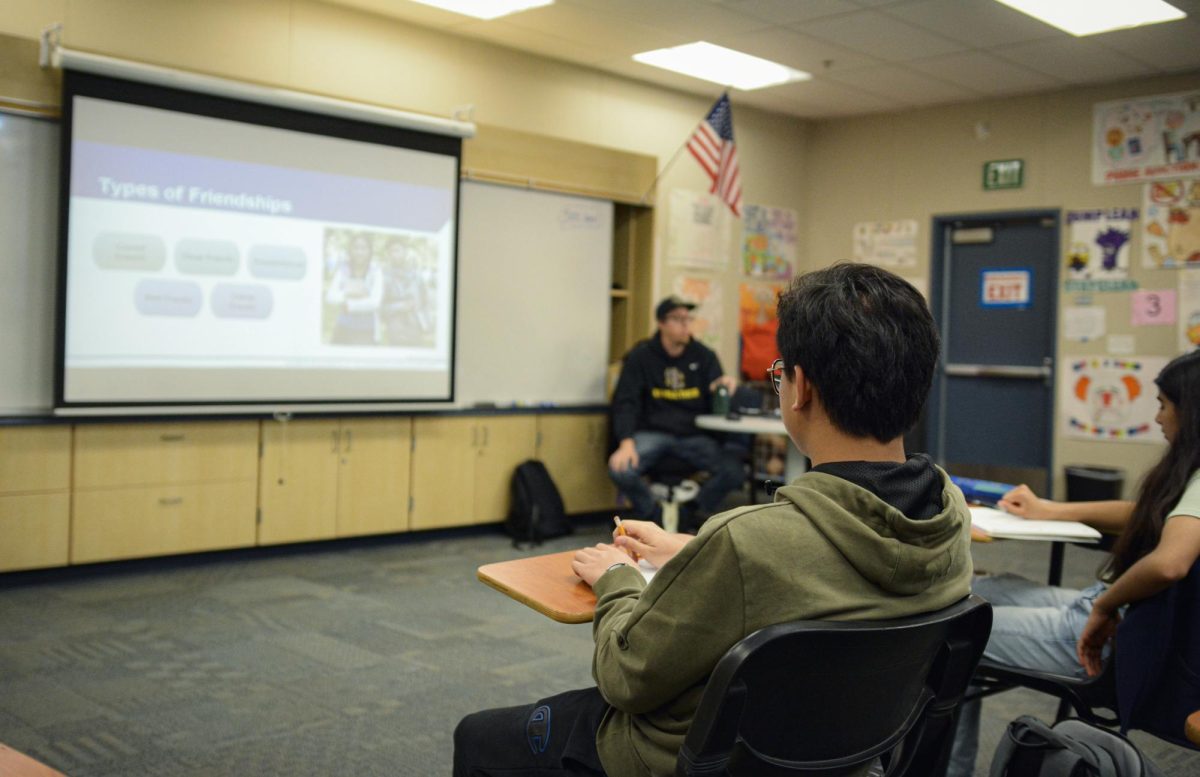From discussing sexual education to navigating relationship advice, the SCHS health course provides support for students learning more about their well-being. Freshman Roshan Nawbatt finds engagement within the course to have helped him frequently in his daily routine.
“Understanding healthy and unhealthy relationships was very impactful for me because it redefined my core values that I have on people that interact with me day by day,” Nawbatt said.
Working to advocate for students within her classrooms, physical education and health teacher Michelle Bumbaca provides insight toward certain discussion topics by sharing from her own awareness.
“I, as the teacher, show vulnerabilities by sharing my personal experiences,” Bumbaca said. “Making connections to real-life situations helps students feel more comfortable and that they are not alone in the things they experience or the way they feel.”
Along with Bumbaca, Nawbatt emphasized the importance of health teachers connecting with students throughout the course.
“They can build an environment where students can express their sexual orientation and feel safe to discuss matters,” Nawbatt said.
Freshmen on campus are currently required to take one semester of P.E., including a quarter of both health and P.E. Bumbaca feels as though additional time reserved for the course would grant students a better understanding of the topics discussed.
“During the quarter class, I find myself only touching on the surface level of concepts,” Bumbaca said. “If students need more in-depth knowledge on any certain concept, that is something they would have to research and find more information about.”
Bumbaca pointed out resources that allow students to express any clarifications or confusion they have within the classroom.
“The curriculum provides an anonymous question box that allows students to ask questions and seek help anonymously,” Bumbaca said. “In addition, there are ‘Teen Talk Agreements’ that the curriculum offers as well to make students feel more comfortable.”
Freshman Landon Madanes acknowledged that the curriculum of the health classes often relies on notes and lectures rather than debates or conversation. He referred to a classroom norm within his ethnic studies class.
“I think just focusing more on getting to know each other instead of going straight to work,” Madanes said. “There was a ticket system where by speaking up and telling people about something you wrote… you get a ticket. I think that would just get people to speak up more, and then they would get more comfortable in that class.”
Looking toward the future, in support of what many health classrooms on campus support, Bumbaca advised that other groups on campus should provide resources surrounding health as well.
“The campus can include resources and clinics posted throughout the hallways,” Bumbaca said. “Perhaps the wellness center or counselors could help provide sex education information as well through presentations or visits to classes.”


